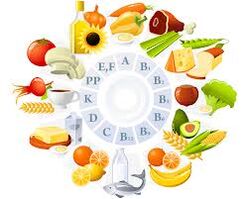
Everyone knows that vitamins are necessary for our body, but few people know that these substances are needed for the proper functioning of the brain.Moreover, for preserving memory and thinking, certain groups of vitamins are required, which will be discussed further.
B vitamins B the most important for memory
B vitamins are the most important for the nervous system.We can say that representatives of this group have the greatest influence on the memory and thinking of a person.They support the work of nerve cells, and also prevent early aging, protect the brain from overloads and stresses.The low content or complete absence of B vitamins leads to severe disorders of the nervous system, reduces the memory and intelligence of a person.
This group of vitamins includes the most important vitamins for the brain - B1, B2, B3, B5, B6, B9, B12.
Thiamine - vitamin B1
Tiamin - vitamin B1, is called the "vitamin of the mind", it is he who has the greatest impact on mental abilities and memory.With its lack, thoughts begin to get confused and memory decreases.Vitamin B1 directly protects the nervous system and is involved in providing the brain with glucose.
With good nutrition, a person does not lack this vitamin, since he is contained in a large number of products: oatmeal and buckwheat cereals (a lot in the shell of grains and husk), bran, peas, nuts, carrots, radish, fel, potatoes, spinach - are the suppliers of thiamin.

It is well absorbed, but also quickly and destroyed, especially under the influence of alcohol, nicotine, sugar, teas.
With a lack of vitamin B1, symptoms occur:
- memory decrease;
- muscle weakness;
- high physical and mental fatigue;
- violation of coordination and gait;
- numbness in the limbs;
- unreasonable irritability;
- oppressed mood;
- tearfulness and anxiety;
- sleep disorders.
In severe cases, polyneuritis, paralysis and paresis of the limbs can develop.The function of the cardiovascular system is also impaired, changes from the gastrointestinal tract (stool disorder, constipation, nausea) may be observed.
Riboflavin - Vitamin B2
Vitamin B2 - Riboflavin is a “vitamin of energy”, an accelerator of energy and exchange in our body, including accelerates the mental processes in the brain, participates in the synthesis of nerve cells and the work of neurotransmitters (biologically active substances, with which nerve impulses are transmitted in nerve cells).With its lack of playing sports, fatigue will be brought more likely than vigor and activity.Vitamin B2 tolerates high temperatures well, but quickly destroys in the light.
Riboflavin suppliers are meat and dairy products.This is the liver, kidneys, eggs, dairy products, yeast, tomatoes, cabbage, rosehip.
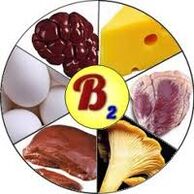
With a lack of vitamin B2, there are:
- headaches;
- decrease in the speed of mental processes;
- drowsiness;
- loss of appetite;
- loss of body weight;
- weakness.
In addition, there are changes in the skin - ulcers and cracks in the corners of the mouth (heit), dermatitis of the skin of the chest and face;Violations of vision - photophobia, lacrimation due to inflammation of the cornea and mucous membrane of the eyes;The synthesis of adrenal hormones is impaired.
Nicotinic acid - vitamin B3 or PP
Nicotinic acid (nicotinamide, niacin) - vitamin B3 - can be called "vitamin calm."Vitamin is involved in the synthesis of enzymes and helps to extract energy from food, with its lack, the body experiences fatigue, depression, depression, insomnia.In addition, nicotinamidvnnoisly participates in the biosynthesis of hormones (estrogen, progesterone, cortisol, testosterone, insulin and others).
The overwhelming amount of vitamin B3 is in animal products: these are liver, eggs, kidneys, lean meat;To a lesser extent, plant products - asparagus, parsley, carrots, garlic, green peas, pepper.
In the absence of it, Pellagra develops in food.The main symptoms of this state of this state are diarrhea (diarrhea), dermatitis (inflammation on open skin surfaces) and dementia (acquired dementia).
Pantotenic acid - vitamin B5
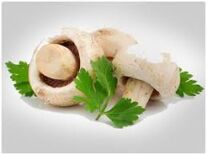
Vitamin B5 - pantothenic acid - this vitamin is found in many products.This vitamin is involved in fat metabolism, in the transmission of nerve impulses, and also triggers the mechanisms of skin restoration.It was previously believed that a person cannot lack this vitamin.
But given that when storing and preparing products, more than half of panthenic acid is destroyed, such symptoms may appear:
- flow flow;
- memory violation;
- impaired sleep;
- headaches;
- paresthesia (tingling) of the arms and legs;
- muscle pain.
To make up for the deficiency of vitamin B5, you need to include a variety of products in the diet: meat, whole sprouted grain, hazelnuts, offal, yeast.A significant amount is contained in legumes, fresh vegetables, champignons, green tea.
Pyridoxine - Vitamin B6
Vitamin B6 - Pyridoxine - is involved in the synthesis of neurotransmitters, including serotonin.Therefore, its other name "vitamin-antidepressant".
With a shortage, the following symptoms occur:
- drowsiness;
- irritability;
- inhibitory thinking;
- depression;
- Feeling anxiety.
Vitamin B6 in large quantities is contained in yeast, cereal grains, legumes, bananas, meat, fish, potatoes, cabbage, pepper, cherries, strawberries.
In addition, vitamin B6 affects the metabolism, the state of the cardiovascular system, immunity, the condition of the skin, the synthesis of hormones, hydrochloric acid in the stomach and the absorption of vitamin B12.
Folic acid - vitamin B9
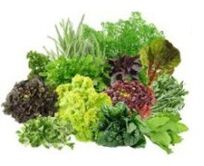
Folic acid - vitamin B9 - is involved in the synthesis of neurotransmitters, including dopamine and serotonin, that is, affects the processes of excitation and inhibition in the central nervous system.Vitamin B9 is also involved in the exchange of proteins, the transfer of genetic information during the development of the fetus, is necessary for the formation of normal blood cells.And in combination with vitamin B5 slows down the hair of the hair.
With its lack, symptoms occur:
- Memory deterioration;
- fatigue;
- a feeling of anxiety;
- anemia;
- Insomnia and apathy.
In large quantities, folic acid is located in fresh dark green vegetables (asparagus, spinach, salad), there is a lot of it in beans, wheat, avocados, in a smaller amount is present in the liver, egg yolk.
Cyanocobalamin - vitamin B12
In nature, it is synthesized only by microorganisms, bacteria, blue-green algae and accumulates mainly in the liver and kidneys of animals.Neither plants nor animals synthesize it.This "red vitamin" is contained in animal products: fish, liver, kidneys, heart, oysters, is also found in seaweed, soy.Vitamin B12 helps our body to move from wakefulness into a “sleeping” regime for normalizing mental processes, transferring short -term memory into long -term.
The deficiency of cyanocobalamin leads to:
- chronic fatigue;
- confusion;
- hallucinations;
- Call in my ears;
- irritability;
- dizziness;
- drowsiness;
- Reducing memory;
- visual impairment;
- dementia;
- depression.
In addition to B vitamins, there are other vitamins for memory and thinking.
Ascorbic acid - vitamin C
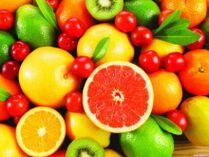
Ascorbic acid is a very strong antioxidant and protects against the oxidative processes of the body of the body.It is required to maintain the work of neurotransmitters in the brain.
In the body, vitamin C is not synthesized, it comes with food: rose hips, black currants, sea buckthorn, parsley, sweet red pepper, citrus, green onions, cabbage, horseradish, nettle, from animal products are contained only in the liver.
Tokoferola Acetate - Vitamin E
This fat -soluble vitamin is, first of all, a magnificent antioxidant, relieves brain tissue from toxins and free radicals.It is included in the lipid composition of cell membranes.A diet rich in products containing vitamin E helps to protect the body from heart attacks and atherosclerosis, thereby preventing the development of dementia.
To do this, in the diet, it is necessary to include unrefined oils (olive, soy, corn), as well as green peas, wheat and rye seedlings, beans, green salad, lentils, oats.
Calciferol - vitamin D
It enters the body with food and is synthesized in the skin under the influence of ultraviolet rays.Calciferol - "main conductor" of calcium exchange in the body.In addition to an important effect on the formation of bones and teeth, growth and development of cells, vitamin D is needed for the proper transmission of nerve impulses and muscle contractions.
There is a large amount in animal products: butter, fatty fish (herring, tuna, salmon, mackerel), fish oil, liver, egg yolk.
Bioflavonoids - vitamin p

The main effect of vitamin P is to reduce the permeability and fragility of capillaries.Along with ascorbic acid protects the body from oxidative processes.This prevents hemorrhage in the brain.We are rich in vitamin P citrus fruits, rosehip fruits, black berries, green tea, apples.
In addition to a balanced diet, the use of vitamins, one must not forget about other ways to prevent dementia.This is the only way to achieve good memory, vigor and optimism in old age.













































































